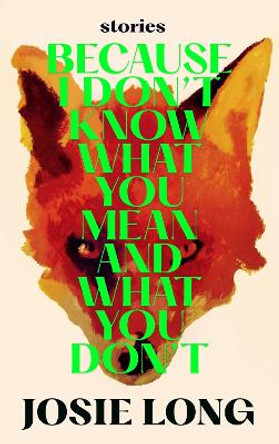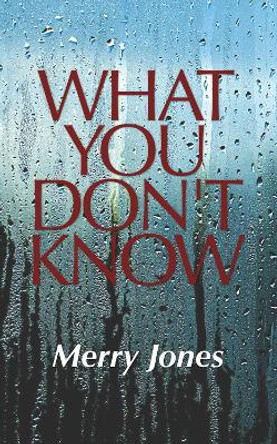Description
Your graduate work was on bacterial evolution, but now you're lecturing to 200 freshmen on primate social life. You've taught Kant for twenty years, but now you're team-teaching a new course on "Ethics and the Internet." The personality theorist retired and wasn't replaced, so now you, the neuroscientist, have to teach the "Sexual Identity" course. Everyone in academia knows it and no one likes to admit it: faculty often have to teach courses in areas they don't know very well. The challenges are even greater when students don't share your cultural background, lifestyle, or assumptions about how to behave in a classroom.
In this practical and funny book, an experienced teaching consultant offers many creative strategies for dealing with typical problems. How can you prepare most efficiently for a new course in a new area? How do you look credible? And what do you do when you don't have a clue how to answer a question?
Encouraging faculty to think of themselves as learners rather than as experts, Therese Huston points out that authority in the classroom doesn't come only, or even mostly, from perfect knowledge. She offers tips for introducing new topics in a lively style, for gauging students' understanding, for reaching unresponsive students, for maintaining discussions when they seem to stop dead, and -yes- for dealing with those impossible questions.
Original, useful, and hopeful, this book reminds you that teaching what you don't know, to students whom you may not understand, is not just a job. It's an adventure.
This is one of the best books I've read on university teaching and learning in a long time. It addresses an issue that's seldom discussed, in a book that's both carefully researched and wonderfully sparkling in style. The author makes a strong case that teaching outside your area of expertise is a serious and extensive problem, and she offers some highly practical advice about how to meet the challenges. I would make this book a standard text for both our new faculty program and teaching fellows program, and I suspect that many other programs will want to do the same. -- Ken Bain, author of What the Best College Teachers Do
About the Author
Therese Huston is Founding Director of the Center for Excellence in Teaching and Learning at Seattle University.
Reviews
This is one of the best books I've read on university teaching and learning in a long time. It addresses an issue that's seldom discussed, in a book that's both carefully researched and wonderfully sparkling in style. The author makes a strong case that teaching outside your area of expertise is a serious and extensive problem, and she offers some highly practical advice about how to meet the challenges. I would make this book a standard text for both our new faculty program and teaching fellows program, and I suspect that many other programs will want to do the same. -- Ken Bain, author of What the Best College Teachers Do
Moving behind the reassuring public image of professorial expertise, Huston exposes a growing but still largely hidden academic reality: university teachers-sometimes even full professors-teaching outside of their field. Interviews with dozens of university faculty convincingly establish the prevalence of the practice and clarify the institutional reasons that it will likely increase in the years ahead. But many readers will quickly move past the analysis of why university faculty must teach outside their specialty to consider the helpful advice on how to do such teaching well...It may surprise librarians how many teachers and administrators seek out this book. -- Bryce Christensen * Booklist *
As [Huston] demonstrates, teaching outside your area of competence is almost the norm in the U.S. academy...The hints and tips provided here will be valuable perhaps everywhere that there is a higher education system...Teaching What You Don't Know will find a good audience as a rescue manual for the young, as it assuages the anxieties facing the postgraduate or the postdoctoral teacher. The book, which clearly draws on a wide range of teaching experience on the U.S. scene, offers good advice and outlines some useful strategies. Huston does, moreover, dig up issues that have become ever more pressing over the past few years. -- Leslie Gofton * Times Higher Education *
Sometimes teachers might find themselves filling in, and Teaching What You Don't Know is a handy book to help them deal with unexpected situations. * Bookseller and Publisher *
When top-down support and open communication become the norm, teaching outside one's expertise can cease to be the nightmarish experience many feel it to be and become the illuminating and rewarding experience that Huston describes. While this is undoubtedly important, Huston's consistently optimistic treatment of this subject and her clear suggestions for struggling teachers remain the book's greatest strengths. Teaching What You Don't Know is a pleasure to read and should be required reading in graduate pedagogy classes across disciplines. -- Adam Pacton * Pedagogy *
Have you ever been asked to deliver a lecture at short notice on a topic that is outside your comfort zone? ...If so, read this book. In fact, ever found yourself wondering how you could improve your teaching, even of topics well within your expertise? Again, if so, read this book. -- Celia Popovic * Innovations in Education and Teaching International *
Awards
Nominated for Frederic W. Ness Book Award 2011.
Book Information
ISBN 9780674066175
Author Therese Huston
Format Paperback
Page Count 320
Imprint Harvard University Press
Publisher Harvard University Press









